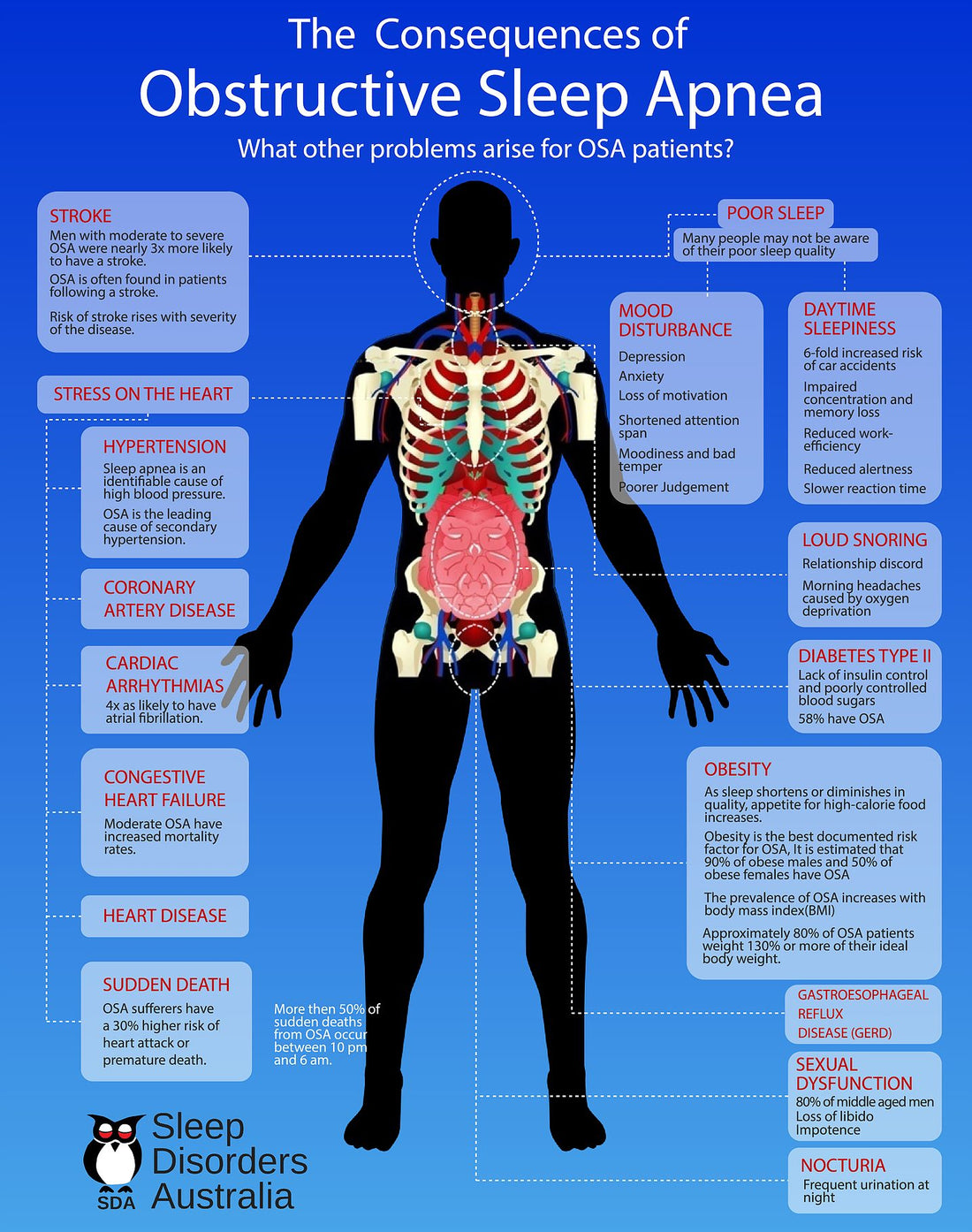
Untreated Sleep Apnea is a significant sleep disorder demanding attention due to its potential impact on health and well-being. As healthcare professionals, we aim to shed light on this condition, providing comprehensive insights into its types, symptoms, and associated risks.

Understanding Sleep Apnea: A Disturbance in the Night
Sleep apnea manifests when breathing intermittently stops and starts during sleep, posing serious health risks if left untreated. Beyond loud snoring, it can lead to daytime fatigue, heart issues, and high blood pressure. Distinguishing itself from primary snoring, sleep apnea is marked by louder snoring, breathing pauses exceeding 10 seconds, shallow breaths, gasping, and restlessness during sleep.
Exploring Sleep Apnea Types: Obstructive, Central, and Complex
1. Obstructive Sleep Apnea (OSA): The most prevalent type occurs when airways become partially or completely blocked during sleep, straining chest muscles and the diaphragm. This strain can lead to abnormal heart rhythms and decreased oxygen flow to vital organs.
2. Central Sleep Apnea: Unlike OSA, this type results from a failure in the brain's respiratory control center, impeding the signalling of muscles to breathe. Common in neuromuscular diseases, stroke survivors, and those with heart or lung ailments.
3. Complex Sleep Apnea Syndrome: Also known as treatment-emergent central sleep apnea, it combines features of both obstructive and central sleep apnea.
Recognising Sleep Apnea Symptoms: More Than Just Snoring
Identifying untreated sleep apnea symptoms is crucial for early intervention. While the affected individual may not notice initial signs, using the guide here and knowing some of the common indicators can help. Common indicators include:
- Snoring
- Daytime fatigue
- Restlessness during sleep
- Dry mouth or sore throat upon waking
- Sudden awakenings with gasping or choking
- Trouble concentrating, forgetfulness, or irritability
- Depression, anxiety, or frequent nighttime urination
- Night sweats
- Sexual dysfunction
- Headaches
Children may exhibit different signs, such as sluggishness, poor school performance, and unusual sleeping positions.
Complications of Untreated Sleep Apnea: A Serious Concern
The ramifications of untreated sleep apnea extend beyond mere discomfort:
- Daytime Fatigue: Frequent disruptions in sleep patterns lead to daytime sleepiness, impairing focus and increasing the risk of accidents.
- Cardiovascular Risks: Sudden drops in blood oxygen levels strain the cardiovascular system, elevating the risk of high blood pressure, heart attacks, strokes, and irregular heartbeats.
- Metabolic Issues: Sleep apnea heightens the risk of insulin resistance, type 2 diabetes, and metabolic syndrome, contributing to heart disease.
- Medication and Surgery Challenges: Breathing difficulties, particularly during anesthesia or while lying on the back, can complicate medication response and post-surgery recovery.
- Liver Complications: Abnormal liver function test results and signs of scarring become more likely with untreated sleep apnea.
Assessing Your Risk for Sleep Apnea: Know the Factors
Certain factors may elevate your risk of developing sleep apnea:
- Being overweight
- Large neck circumference
- Narrowed airways due to genetics, enlarged tonsils, or adenoids
- Male gender
- Advancing age
- Family history of sleep apnea
- Smoking
- Use of alcohol, sedatives, or tranquilizers
- Nasal congestion
- Medical conditions like diabetes, heart failure, high blood pressure, Parkinson's disease, PCOS, prior stroke, or chronic lung diseases
At Sleep Mate CPAP, we prioritise your sleep health. Sign up to our monthly news letter to stay informed, recognise the signs, and receive exclusive deals to ensure a restful and rejuvenating night's sleep.

